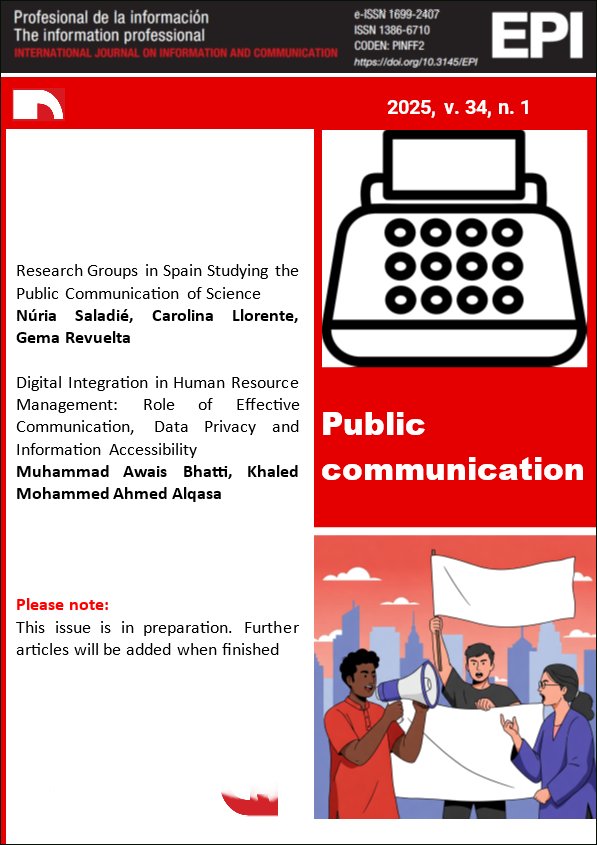From Information to Apomediation: Interactions, Themes, and Feelings about Low Back Pain on YouTube
DOI:
https://doi.org/10.3145/epi.2025.ene.34107Keywords:
Apomediation, Low Back Pain, YouTube, Digital Interactions, Support Networks, Emotional Validation, Misinformation, Knowledge Construction, YouTube Comments: Information Mediation, Sentiment AnalysisAbstract
YouTube is reshaping information mediation on lumbar pain by facilitating the transition from scientific and institutional sources to decentralized knowledge models. Through channels with millions of views, users engage in interactions that foster engagement, behavioral change, and apomediation, albeit with potential risks of misinformation. This study examines user interactions in YouTube videos on lumbar pain to identify predominant themes and sentiments, uncover underlying apomediary dynamics, and assess their role in the transition from information to apomediation. A descriptive-evaluative study was conducted, analyzing a corpus of 30,720 comments from 100 videos using statistical text analysis techniques to detect latent sentiments and apomediary patterns. The findings indicate that YouTube users actively contribute to knowledge construction, reshaping information through individual and collective experiences. Emotions play a crucial role in validation and the formation of support networks, where gratitude strengthens resilience and fear prompts critical reflection. The study concludes that the transition from information to apomediation is reinforced through interaction, reinterpretation, and emotional validation, fostering support networks for learning and coping with lumbar pain.
Downloads
Downloads
Published
How to Cite
Issue
Section
License
Copyright (c) 2025 Profesional de la información

This work is licensed under a Creative Commons Attribution 4.0 International License.
Dissemination conditions of the articles once they are published
Authors can freely disseminate their articles on websites, social networks and repositories
However, the following conditions must be respected:
- Only the editorial version should be made public. Please do not publish preprints, postprints or proofs.
- Along with this copy, a specific mention of the publication in which the text has appeared must be included, also adding a clickable link to the URL: http://www.profesionaldelainformacion.com
- Only the final editorial version should be made public. Please do not publish preprints, postprints or proofs.
- Along with that copy, a specific mention of the publication in which the text has appeared must be included, also adding a clickable link to the URL: http://revista.profesionaldelainformacion.com
Profesional de la información journal offers the articles in open access with a Creative Commons BY license.




